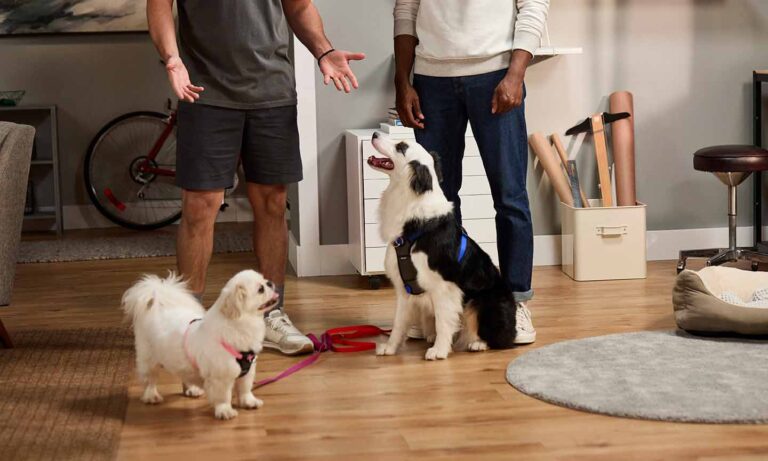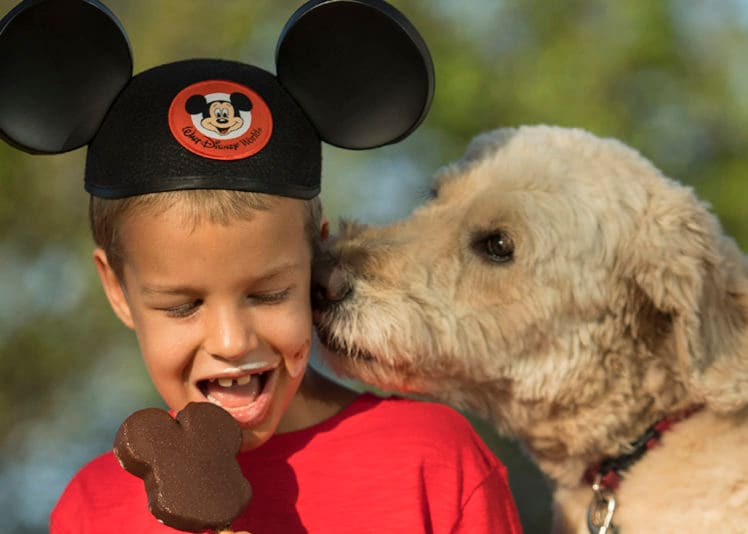As you probably know, if something’s bothering your four-legged friend, it’s not always easy to pinpoint the cause. If you pal’s acting sluggish, it probably means he isn’t feeling well. Off to the vet you go. But what about dog behavioral problems, such as aggression, which seemingly come out of nowhere?
According to Nicole Wilde, author of Help for Your Fearful Dog and other books, “Many times the cause for aggression is obvious, such as [when your dog is] guarding food or feeling threatened. But when the cause is not clear, the bigger picture must be examined, with the help of a professional if necessary.”
Your vet can help you determine whether there’s an underlying medical condition. It is possible that anything like disease, injury, or chronic discomfort could be causing your dog’s aggression. Sometimes, the cause is more nebulous, like stress. It’s worth asking your vet about the types of things that could drive your dog’s aggression and change her behavior.
What’s Stressing Your Dog Out?
“Depending on the individual, a stressor could be anything from the noise of new construction outside the home, to a beloved family member being away, to a new baby in the home,” Wilde says. These are all fairly common causes of a stressed dog and might have an effect on their own. Or, your dog might be experiencing what Wilde calls trigger stacking, which is a confluence of many little stressors that finally overwhelm your pup.
“This is when various stimuli that would normally stress your dog but not push him over the top to aggression happen in close proximity,” Wilde explains. “For example, a dog misses his usual exercise one morning, isn’t feeling well, becomes upset at a delivery person, gets petted on the hindquarters; while each individual act would not normally elicit aggression from this dog, when stacked one on top of the other, aggression could result.”
Sound familiar? These one-after-another distractions—the kind of things that we may have learned to live with as humans—could be warping your dog’s outlook. If you’re unsure, look for the signs of stress in your dog’s body language: ears down and flat against his head, lip licking, head turned away, eyes that are either closed in submission or have visible whites, and possible barking, whining, or growling.
How to Banish Stress
So, how do you help your stressed dog? The first step should be proper nutrition and regular exercise. Just like in humans, the more your dog can rely on a solid schedule of good food and good workouts, the better off she’ll be handling any complications that get thrown at her.
There may also be ways to treat individual issues, according to Wilde. “For example, if a dog is stressed from spending all day alone in the yard, treatment might be as simple as a pet sitter coming over midday. If stress is the result of being afraid of visitors, behavior modification is indicated.” There are also natural remedies and medications available for extreme cases, but Wilde cautions, “the important thing is to distinguish accurately what is causing the stress so that proper treatment can be implemented.” That’s where your vet comes in.
If your pet tends to stress out from specific stimuli such as a visit from the mail carrier or thunderstorms, you can try out some solutions like calming treats, diffusers or sprays. Sentry makes a behavior correction spray that uses noise and pheromone technology to stop your dog’s aggression.
And don’t overlook the possibility that you might actually be the thing stressing your dog out! Some dog owners, especially children, love to hug dogs as a sign of affection. But, as some research indicates, your pal might not be so keen. Wilde agrees: “To dogs, it is simply restraint. There are dogs who enjoy being hugged, many more who simply tolerate it, and some who find it frightening to the point that they become defensive and bite.” She recommends petting on the chest or ears as a safe alternative.
Dogs are such stalwart companions that it’s easy to forget that the accumulation of life’s challenges can get them down, too. But being caring and observant of your dog’s behavior are all that’s needed to keep your dog’s outlook sunny.
Share:













